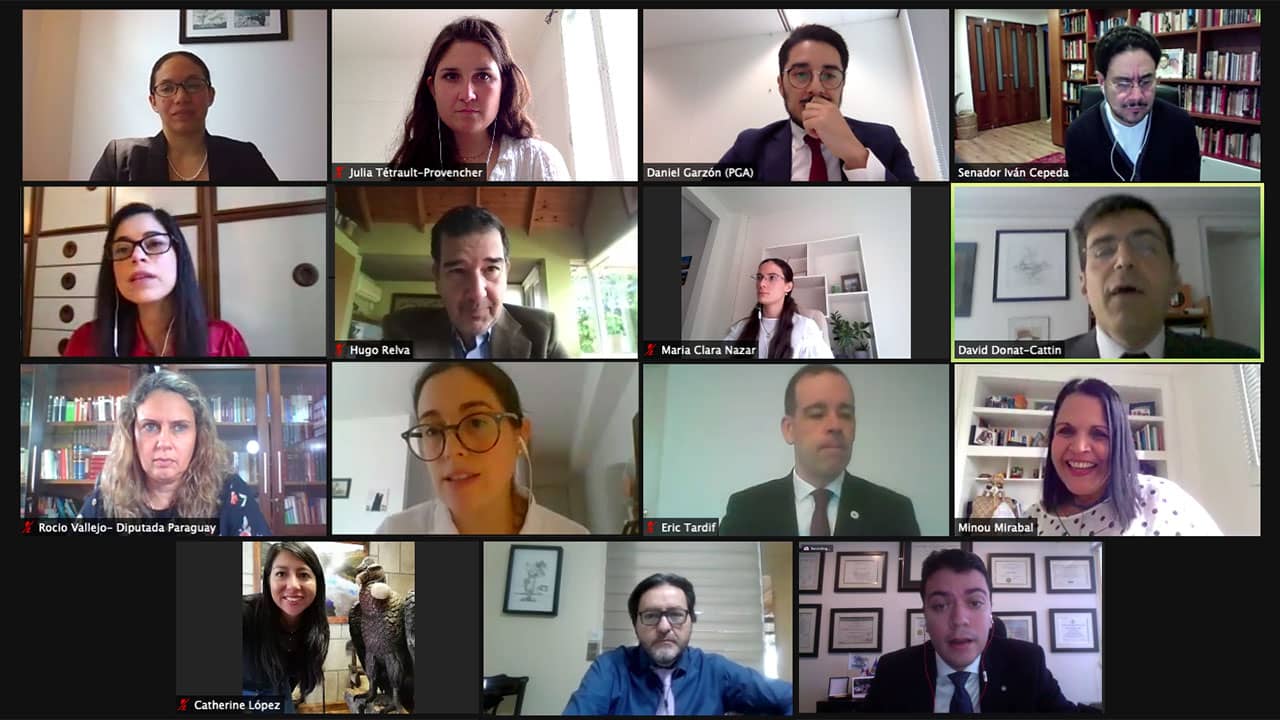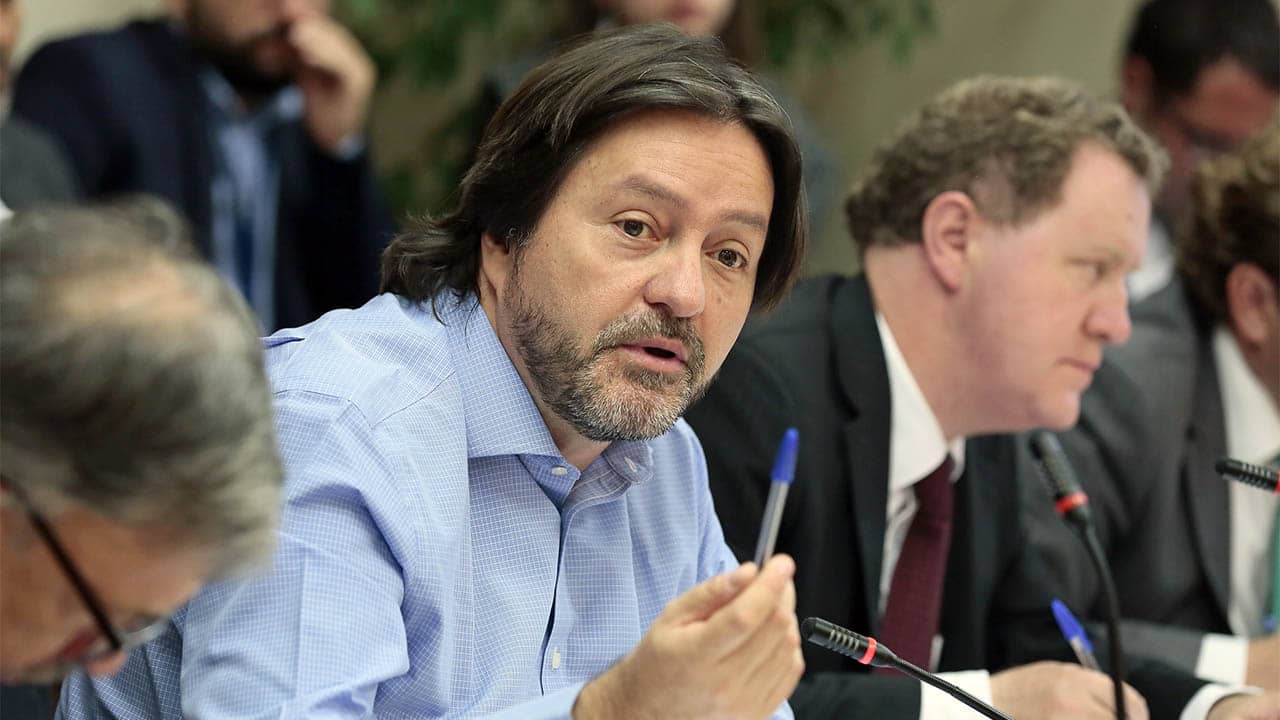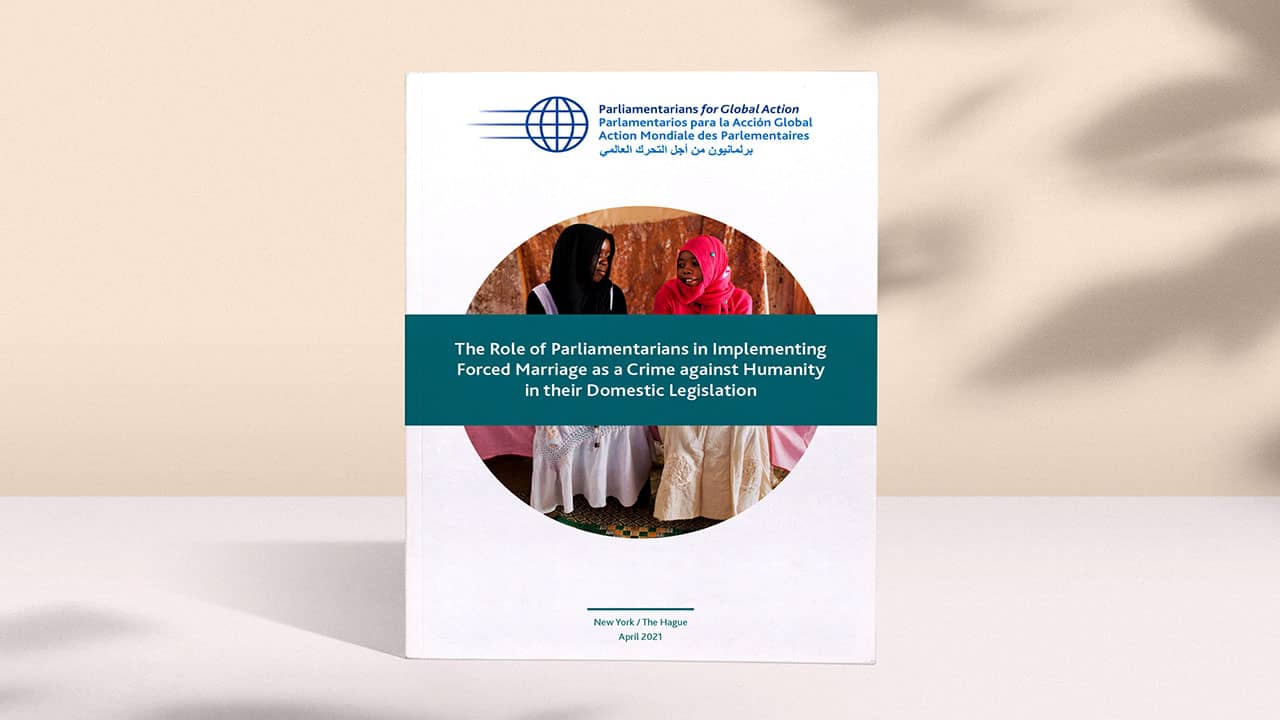A First Half Marked by Adaptation, Resilience and Innovation
This 3rd edition of the Campaign Update for the Rome Statute of the International Criminal Court (ICC) mainly focuses on obstacles PGA overcame and its successes during the first half of 2021 amid the limitations caused by the global pandemic which compelled the Secretariat and Members to Adapt and Innovate more than ever.
During the first half of 2021, the world was still struggling with fighting the pandemic. While public and legal institutions slowly started to re-open their doors for in-person meetings, most organisations, including PGA and its Members, had to adapt and innovate to continue their activities. The Secretariat endeavored to overcome the growing Zoom fatigue to continue fostering exchanges between Members of Parliament (MP) on relevant issues closed to our Campaign on the Universality of the Rome Statute of the ICC.
PGA adapted to the new virtual reality and promoted an online, yet dynamic, discussions between Parliamentarians, experts, academics, practitioners, and civil society representatives on how best to tackle challenges and strengthen national legal systems to hold accountable those responsible for mass atrocities. Online events that were organized by the Secretariat included the second part of the 8th session of the Middle East and North Africa Working Group, the ECOWAS Parliamentary Workshop on the Fight Against Impunity – a hybrid event co-hosted by the PGA Nigeria National Group in Abuja (Nigeria) – and the Parliamentary Workshop on the implementation of international standards to fight against impunity for atrocity crimes.

These events were respectively an occasion for MPs from Nigeria and the Gambia to reiterate their commitment to work towards the implementation of the Rome Statute, and for MPs from Latin America, including Asambleista Esther Cuesta from Ecuador, to express the commitment to submit a new Draft Law on cooperation with the ICC.
Our Members also showed resolve to strengthen the Rule of Law in spite of these difficult times. PGA notably worked in collaboration with Hon. Solaimankhail (Afghanistan) to prepare a Draft Parliamentary Resolution on Peace with Justice for Afghanistan reiterating Afghanistan’s international obligations and its commitment to the ICC, which is currently investigating the situation in the country. PGA also offered technical support to Chilean Parliamentarians and shared a comprehensive legal assessment and suggestions for amendments to the Bill on Cooperation with the ICC. In a similar vein, PGA, represented by Dip. Jiménez (Chile), participated in the Technical working meeting to strengthen cooperation with the ICC organized by the Organization of American States which was an occasion for states to renew their commitment to fully cooperate with the Court.

We’ve also been working relentlessly to improve our website to offer reliable information on the Status of the Rome Statute system. We are currently updating the information for all countries of the world. This tool, which is still a work in progress, intends to fill a gap identified by our Team regarding the information available on the Rome Statute system, including how international crimes are implemented in national jurisdiction, the status of ratification of the Kampala Amendments or the existence of cooperation agreements between states and the Court. Once ready, the Secretariat would like this user-friendly tool to serve an informative and advocacy purpose not only for Members and their colleagues, but also civil society organisations or any citizen wishing to learn more about their state’s involvement in the fight against impunity for international crimes.
The first half of 2021 saw an important development at the ICC. Dominic Ongwen, a former child soldier and Commander of the Sinia Brigade of the Lord’s Resistance Army in Northern Uganda, was found guilty of 61 crimes, including forced marriage as a crime against humanity. This decision marks the first time that the Court found a perpetrator responsible for the crime of forced marriage.
PGA co-organised a Roundtable with Women’s Initiatives for Gender Justice to encourage an exchange between Parliamentarians, survivors of sexual violence, experts and civil society representatives on the importance of protecting victims’ rights in national constitutions, the responsibility of states to provide for reparation to victims and survivors, and how Parliamentarians can use their legislative prerogative to advance the implementation of the Rome Statute in their national jurisdiction.

To that end, PGA created a Toolkit on The Role of Parliamentarians in Implementing Forced Marriage as a Crime against Humanity in their Domestic Legislation. This Toolkit can be used as an advocacy tool by Parliamentarians, civil society representatives and individuals wishing to enhance the legal protection of victims and survivors and their access to justice, including for sexual and gender-based crimes (SGBC). As a result of that roundtable, PGA will work with its National Group in Uganda on two parliamentary bills aiming to protect women – the Marriage and Divorce bill and the Transitional Justice Bill, which provides for reparation for victims of armed conflict in accordance with international law standards.
On 6 May the Court, noting that 4,095 victims were authorised to participate in the Ongwen case, that an important amount of information relevant to the reparation order was available and that the crimes took place more than 15 years ago, deemed that the reparations phase of the proceedings should advance to avoid unnecessary delay. The Court therefore instructed the Parties, the Registry, and the Trust Fund for Victims to make submissions by 6 September on several issues, including the estimate number of direct and indirect victims of the crimes for which Mr. Ongwen was convicted, including forced marriage, and an estimate of the costs.
While this decision of the Court is welcomed and brings survivors of SGBV a step closer to obtaining reparation, Ms. Grace Acan, Community Right Advocate from the Women’s Advocacy Network (Uganda) and Jackline Atingo, Research-Consultant for the Justice & Security Research Project at the London School of Economic (Uganda), underscored the fundamental role of the legislators. Indeed, they are key to implementing legislation that effectively support survivors of forced marriage as well as their children, and ensure their access to land and to education. National jurisdictions should always work in complementarity with the ICC.



